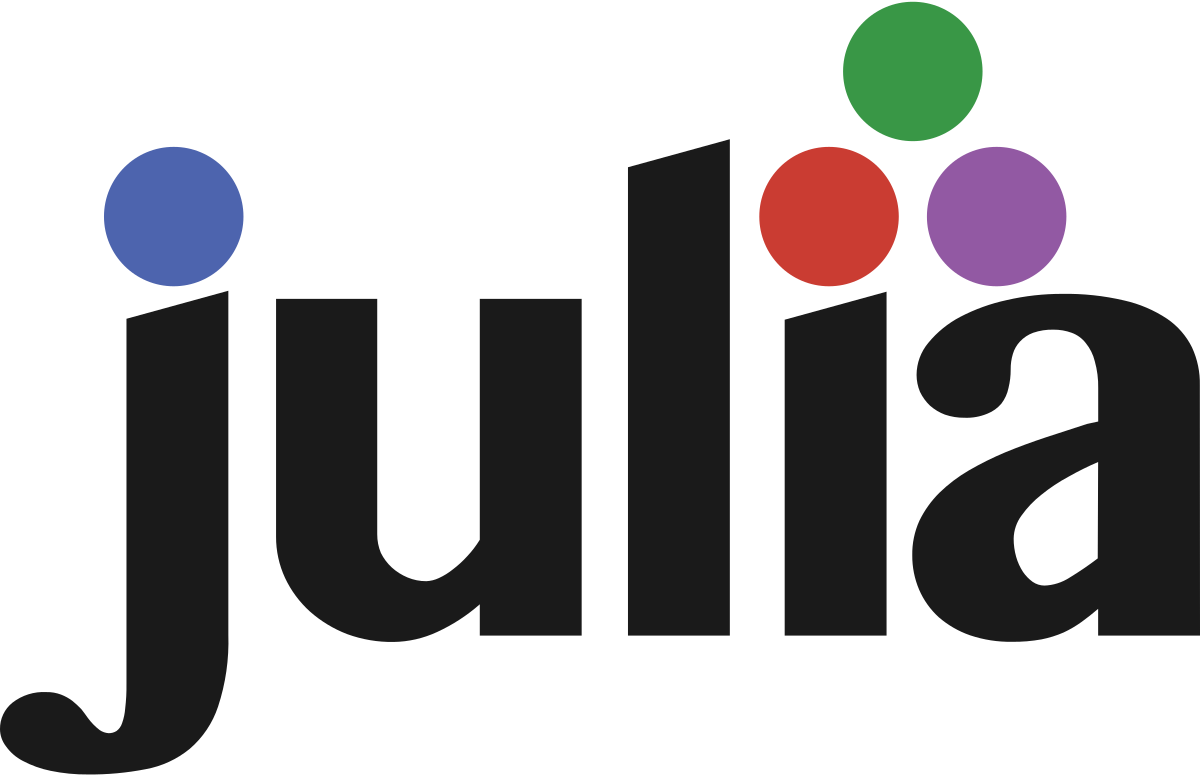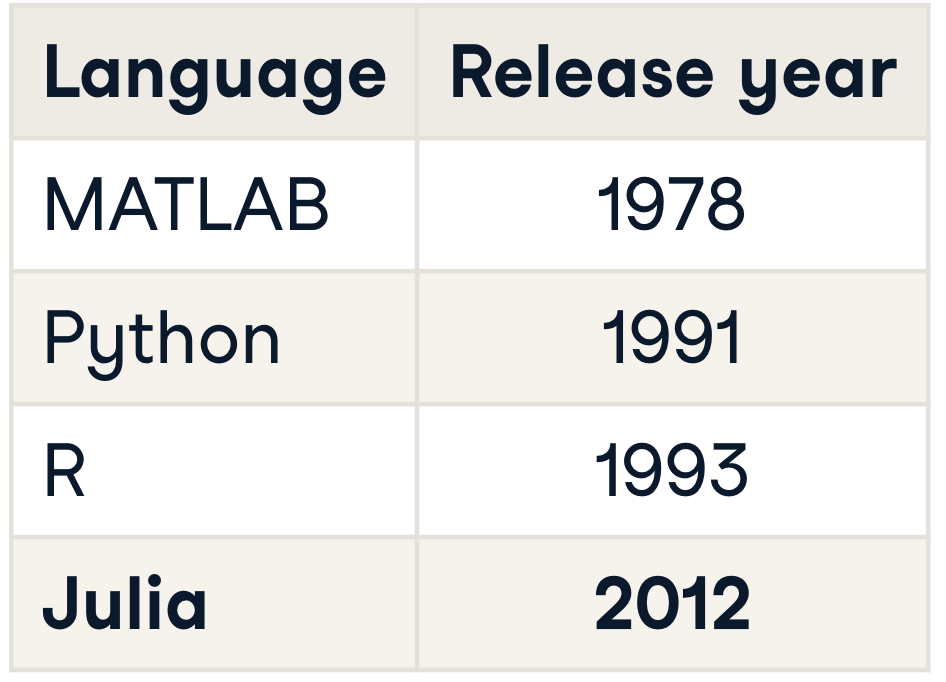Getting started with Julia
Introduction to Julia

James Fulton
Climate informatics researcher
What is Julia?
- An open-source language designed for data science
- Newer than other common languages
- General purpose
- Designed for scientific computing and data tasks


Why create Julia?
Designed by Jeff Bezanson, Stefan Karpinski, Viral B. Shah, and Alan Edelman
Julia was designed to be:
- Simple to learn
- Able to keep the most serious hackers happy
- As usable for general programming as Python
- As easy for statistics as R
- As powerful and natural for linear algebra as MATLAB
- Speed of C
1 https://julialang.org/blog/2012/02/why-we-created-julia
This course
- For beginner programmers
- Basics of Julia
- Working with data in Julia

Installing Julia
You can download Julia from:
Run Julia online:
Scripts vs. the console
The console

Scripts vs. the console
The console

Scripts vs. the console

Simple calculations and printing
Inside script.jl:
# Print the number 2
println(2)
# Print the sum of 1+2
println(1+2)
2
3
Comments
Inside script.jl:
# Print the number 2 <--- these are comments
println(2)
# Print the sum of 1+2 <--- these are comments
println(1+2)
2
3
Comments
Inside script.jl:
Print the number 2
println(2)
Print the sum of 1+2
println(1+2)
ERROR: LoadError: syntax: extra token "the" after end of expression
Stacktrace:
[1] top-level scope
@ ~/script.jl:1
Multi-line comments
Inside script.jl:
#=
=#
println(2)
2
Multi-line comments
Inside script.jl:
#=
Print the
number 2
=#
println(2)
2
Let's practice!
Introduction to Julia

